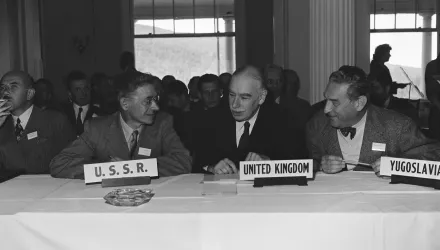International Security is America's leading peer-reviewed journal of security affairs.
Abstract
Amy Zegart of the Universityof California, Los Angeles, argues that the vulnerability of the United Statesto the terrorist attacks of September 11, 2001, is explained by the failure of U.S.intelligence agencies to address the rise of the terrorist challenge following the 1991 collapse of the Soviet Unionand the end of the Cold War. Zegart presents evidence suggesting that although policymakers were well aware of the terrorist threat to the United Statesand realized the need for organizational change in the U.S.intelligence community, they were unable to achieve the reforms that several blue-ribbon commissions and studies urgently recommended before the September 11 attacks. Zegart contends that three factors explain the intelligence community’s failure to adapt: the nature of bureaucratic organizations; the self-interest of presidents, legislators, and government bureaucrats; and the fragmented structure of the federal government.
Zegart, Amy. “September 11 and the Adaptation Failure of U.S. Intelligence Agencies.” Spring 2005
The full text of this publication is available in the link below.



